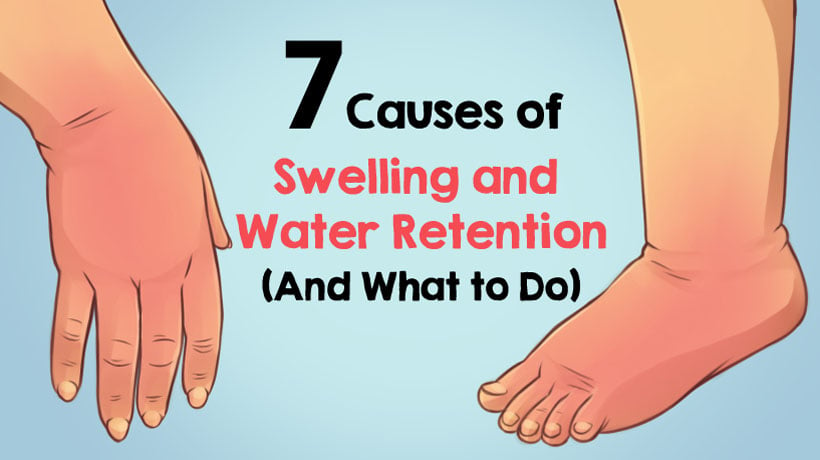Water retention, also known as fluid retention or edema, occurs when excessive amounts of fluid build up inside the body. It can occur in the circulatory system or within tissues and cavities throughout the body. The result is swelling in the hands, feet, ankles and legs.
There are several possible causes of water retention, most of which are not too serious or out of the ordinary. For example, it’s very common for some women to experience the condition during pregnancy or before their periods.
However, in some cases, water retention can be a symptom of a more severe medical condition, such as kidney disease or heart failure. That’s why if you’re suddenly or severely experiencing swelling, you should seek medical attention immediately.
But in cases where the puffiness is mild and there are no underlying medical complications, water retention can be reduced. Here are seven things that may trigger water retention and what to do about them.
Salt
Salt is made out of sodium and chloride. In the body, sodium binds to water and helps maintain the balance of fluids both inside and outside of cells. If you eat a lot of foods that are high in salt, especially processed meals and snacks, you are putting your body at a higher risk of retaining water. If you’re looking to decrease overall swelling, minimize the amount of sodium in your diet.
Lack of magnesium
Is your body ballooning, but you don’t know why? It could be the result of too little magnesium. Researchers have shown that magnesium is effective at reducing water retention, especially in women with premenstrual symptoms. Foods rich in magnesium include nuts, whole grains, dark chocolate and leafy, green vegetables. Some people might even benefit from taking a daily magnesium supplement.
Vitamin B6 deficiency
Like magnesium, vitamin B6 may help reduce water retention, especially in women with premenstrual syndrome (PMS). If you’re experiencing water retention, it could be a sign that you’re deficient in vitamin B6. Good sources of vitamin B6 include bananas, potatoes, walnuts and meat, so try incorporating these into your diet to stop swelling in its tracks.
Too little potassium
Potassium can help to reduce water retention in the body, so if you’re experiencing swelling, too little of this essential mineral might be too blame. Potassium can help in two different ways: First, the mineral increases the production of urine, and second, it decreases the levels of sodium in the body. To up your potassium levels, try eating foods that are rich in the mineral, such as bananas, avocados and tomatoes.
Refined carbs
The consumption of refined carbohydrates (think: processed sugars and grains, like table sugar and white flour) leads to high spikes in both blood sugar and insulin levels. This can cause the body to retain more sodium because it increases reabsorption in the kidneys—and the result is the same as eating a bag of salty potato chips.
Physical inactivity
Exercise stimulates the lymphatic system to carry out its necessary function of regulating overflow. When the system is working properly, it’ll bring fluids back into the bloodstream at rates that regulate body water levels. But extended periods of physical inactivity—such as when bedridden due to illness or injury, or sitting through long flights or car rides— increase the risk of water retention. Get moving to reduce fluid buildup, especially if it’s in the lower half of the body. Elevating your feet can also help.
Dehydration
Ironically enough, increasing water intake can actually reduce water retention. Water helps your liver convert fat into usable energy. When dehydrated, your kidneys are overwhelmed with concentrated fluids, and they will make your liver do extra work. The liver usually turns body fat into energy, so when it can’t do that, the body will hold onto extra fat and cause bloating.
Sources:
https://www.healthline.com/nutrition/6-ways-to-reduce-water-retention
https://www.medicalnewstoday.com/articles/187978.php



